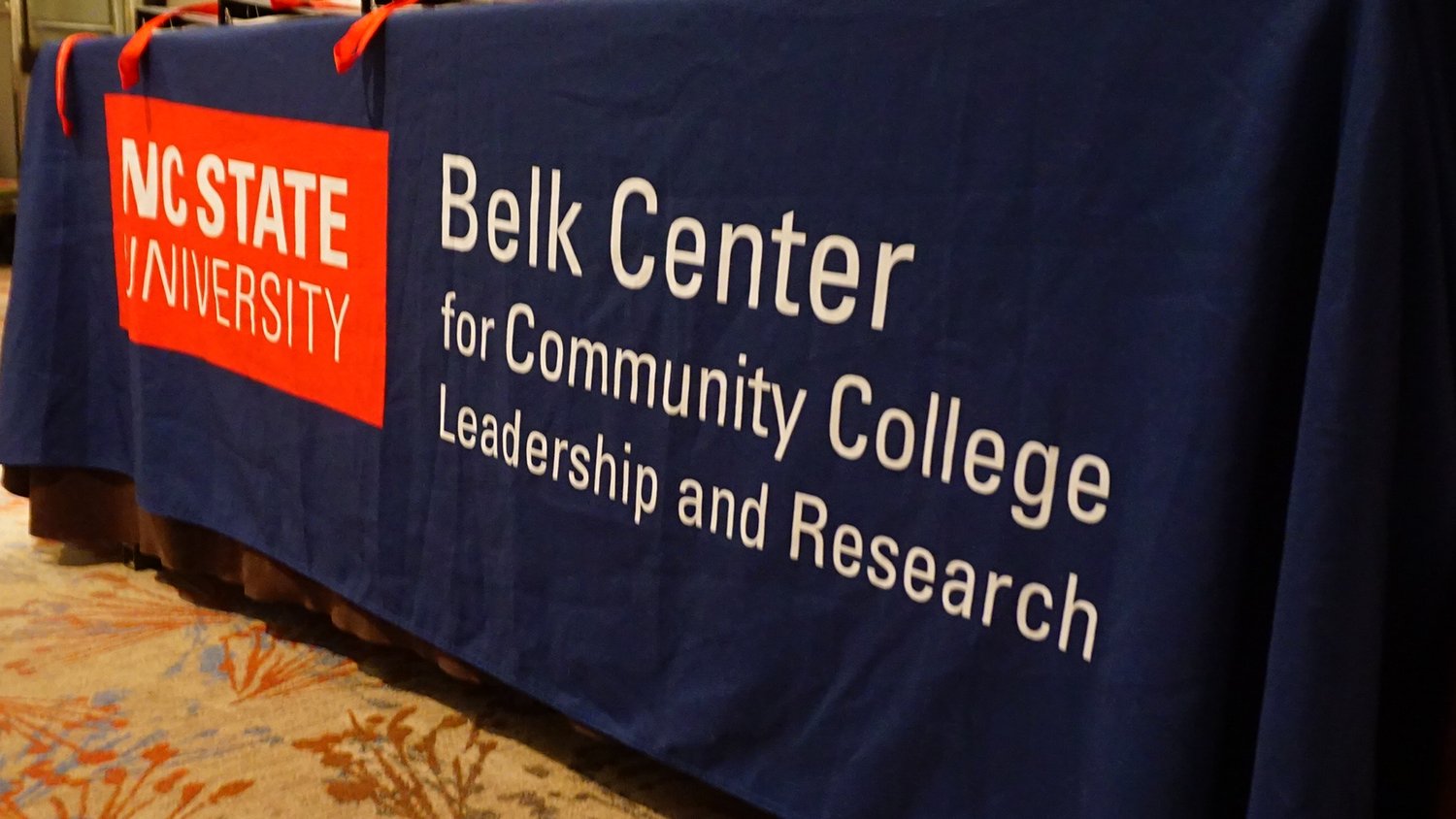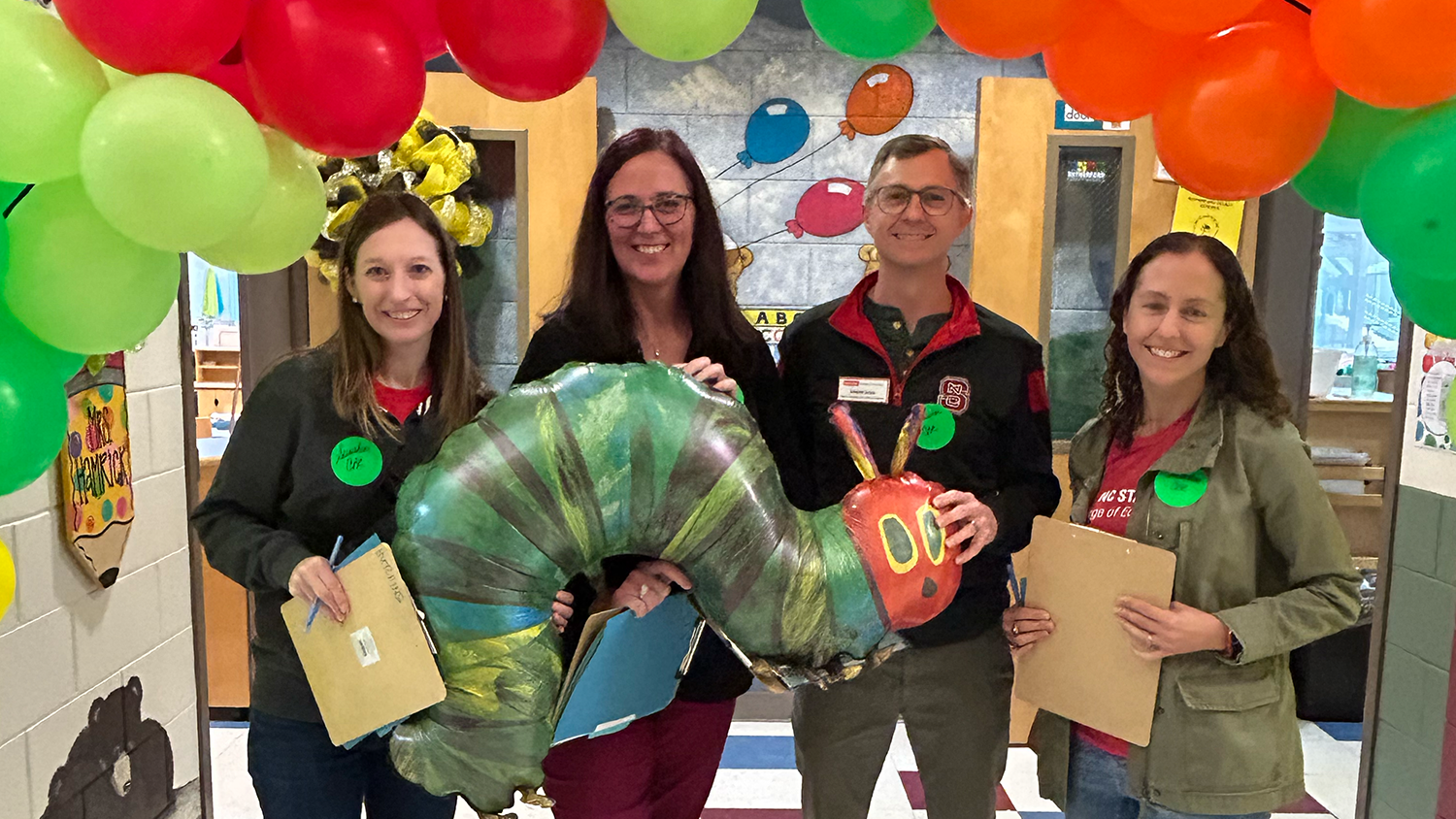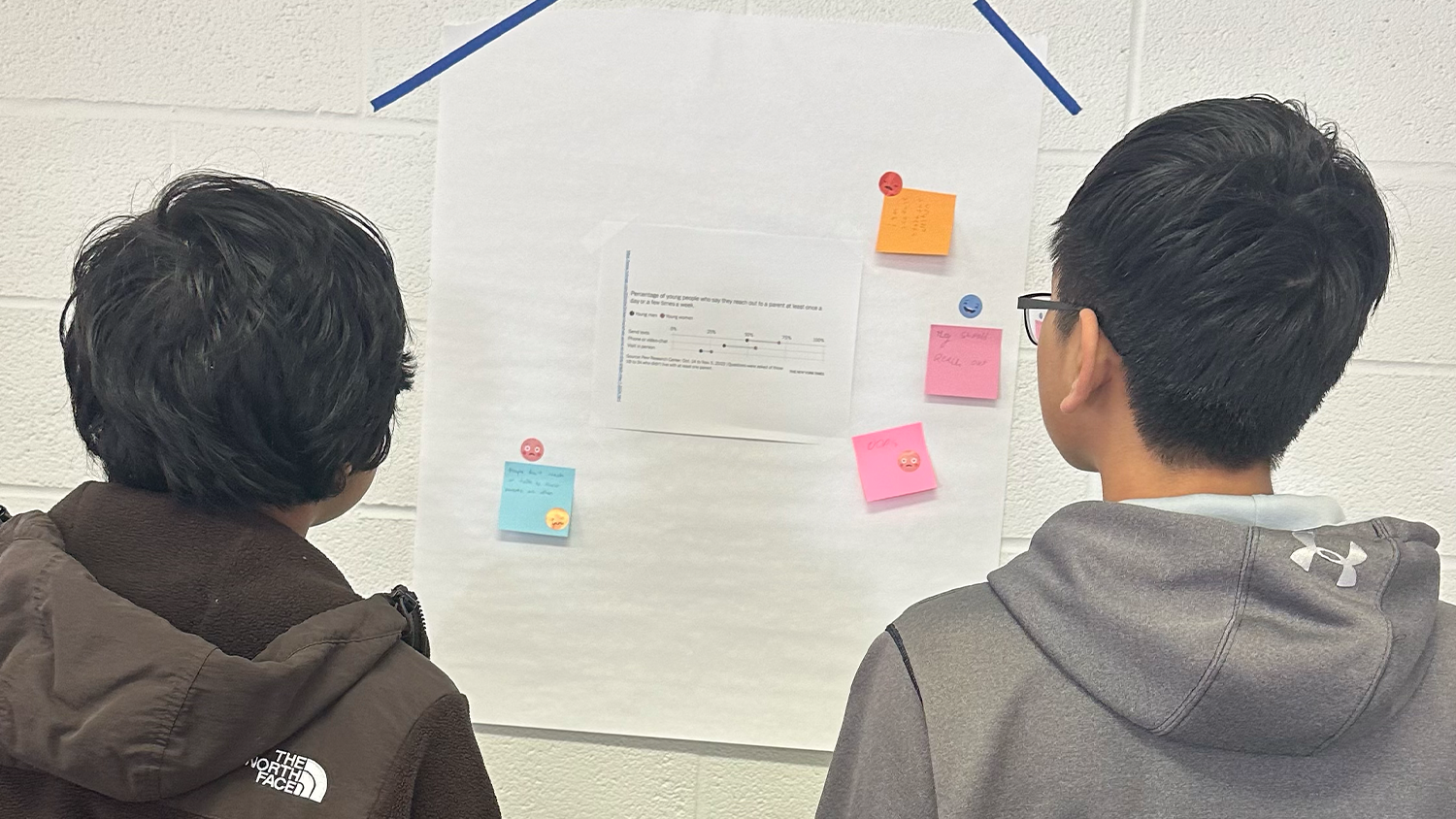Belk Center Offers Webinars, One-on-One Support for Community College Educators During COVID-19 Outbreak

With community college campuses across North Carolina closed to help stop the spread of the coronavirus (COVID-19) outbreak, the NC State College of Education’s Belk Center for Community College Leadership and Research is providing support to help ease the transition to remote learning.
The overall work of the Belk Center focuses on providing support to community colleges as they work to improve student success outcomes to fuel workforce development and increase economic mobility in North Carolina. As the coronavirus pandemic has changed the landscape of education, the Belk Center has shifted their focus to address the urgent needs that community colleges are facing.
[spotlight-box label=”” img=”” heading=”Belk Center Offers Help for Communicating with Students Online” cta=”Register to Attend the Webinar” url=”https://docs.google.com/forms/d/e/1FAIpQLSf8jziujOEGF-W3qVFkD7gOPEyQCe-iwormlcG73e9qwQQTmw/viewform”]The Belk Center for Community College Leadership and Research is continuing to support community colleges as they transition to remote learning. Assistant Teaching Professor Michelle Bartlett, Ph.D., and Assistant Teaching Professor Carrol Warren, Ed.D., will host two Zoom webinars this month focused on “Communicating with Students Online.” Community college educators have the option to join webinar sessions on either April 7 or 8 at 11 a.m.[/spotlight-box]
The Belk Center has partnered with the North Carolina Community College System and Student Success Center, and Audrey Jaeger, Ph.D., Alumni Distinguished Graduate Professor and executive director of the Belk Center, has engaged on behalf of the Belk Center in daily phone calls with community college presidents. Through these interactions, Belk Center faculty and staff have identified the areas in which community colleges need urgent support and developed ways to address those needs.
“The needs we are serving are directly connected to what we are hearing from our community college and System Office colleagues,” Jaeger said. “We collectively recognized that faculty need immediate support, particularly those who aren’t familiar with remote or online learning.”
Beginning on March 18, the Belk Center hosted webinar sessions facilitated by Assistant Teaching Professor Michelle Bartlett, Ph.D., and Assistant Teaching Professor Carrol Warren, Ed.D., to support community college instructors who are transitioning their courses from a face-to-face to online format.
More than 180 attended the first three webinars, where Bartlett and Warren shared tools — including texting tool Remind.com, Google Voice, which would allow educators to stay in touch with students without divulging personal phone numbers, and Sketchnotes, a visual approach to taking notes and brainstorming — that would be user-friendly and easy to use without overwhelming students or educators.
[spotlight-box label=”” img=”32755″ align=”left” heading=”Providing Support During COVID-19″ cta=”Visit the COVID-19 Tips and Resources Page” url=”https://ced.ncsu.edu/news-new/coronavirus-college-updates/resources-for-covid-19/”]The NC State College of Education is committed to supporting educators, students and parents as they teach and learn remotely during the coronavirus (COVID-19) pandemic. To help with this, we have created a page dedicated to providing tips and resources to ease the transition to at-home learning[/spotlight-box]
These initial Zoom webinars spawned a dedicated system in which community college instructors can request support and receive hands-on guidance from Belk Center faculty at no charge. Faculty members who utilize this service will be paired with a coach who can assist with things such as developing video lectures, creating an online gradebook, adding specific tools into their online courses or working with career and technical education (CTE) instructors to get seated work for careers like truck driving into a workable online environment.
“Community colleges are facing so many new challenges now, which means that some colleges would not be able to support all of their faculty during this time of crisis,” Jaeger said. “Our one-on-one support is unique and goes beyond webinars that many organizations are offering to assist faculty. We want everyone to find the help they need.”
“I believe the connections we are making through this joint endeavor will result in increased collaboration and will lead to the development of creative ideas for completion even beyond the current climate,” Warren added.
More than 50 community college faculty members have already signed up to receive virtual support. Bartlett and Warren have also created a series of online videos that focus on topics such as designing an online course for students without high-speed internet access and ways to teach necessary skills while revising assignments to lighten the load for distressed students during the pandemic.
“Currently, we are creating short videos as they are requested by community college faculty across North Carolina,” Bartlett said. “These requested videos are about active learning in an online classroom, critical thinking and handling lab hours online. Topics will vary depending upon the requests we receive.”
Their videos, as well as a recording of the March 18 webinar, can be found on the Belk Center’s “Resources for Community Colleges” website. The website also includes a form to request one-on-one support along with links to resources for online teaching, community-based resources for students and advice about maintaining equitable educational opportunities online.
In addition to creating the resource page, Jemilia Davis, Ph.D, the Belk Center’s director of strategic initiatives and external relations, and Andrea DeSantis, assistant director of research, worked with the North Carolina Student Success Center to create a Google Drive folder that has been shared with community colleges and is regularly updated to provide a running list of resources to address the most frequently answered questions.
“Mirroring our community college colleagues, the Belk Center has remained nimble to redirect their focus and resources towards filling any gaps during this transition to online learning,” Davis said.
Since the transition to online-only learning began, the Belk Center has engaged with over half of North Carolina’s 58 community colleges. Many of the educators who interacted with the resources provided through the Belk Center indicated that their top priorities are determining how to best serve students, maintain quality in their courses despite changes and how to reduce the burden shared by their colleagues.
Belk Center faculty will continue to address these priorities with additional scheduled Zoom webinars as well as virtual office hours to support community college educators.
“North Carolina community college faculty are incredible, and have experienced a sudden major disruption. Yet, they have been extremely student-focused while also remaining agile and approaching the transition with resilience. We are so fortunate to be able to partner with these amazing colleagues,” Bartlett said.
- Categories:


